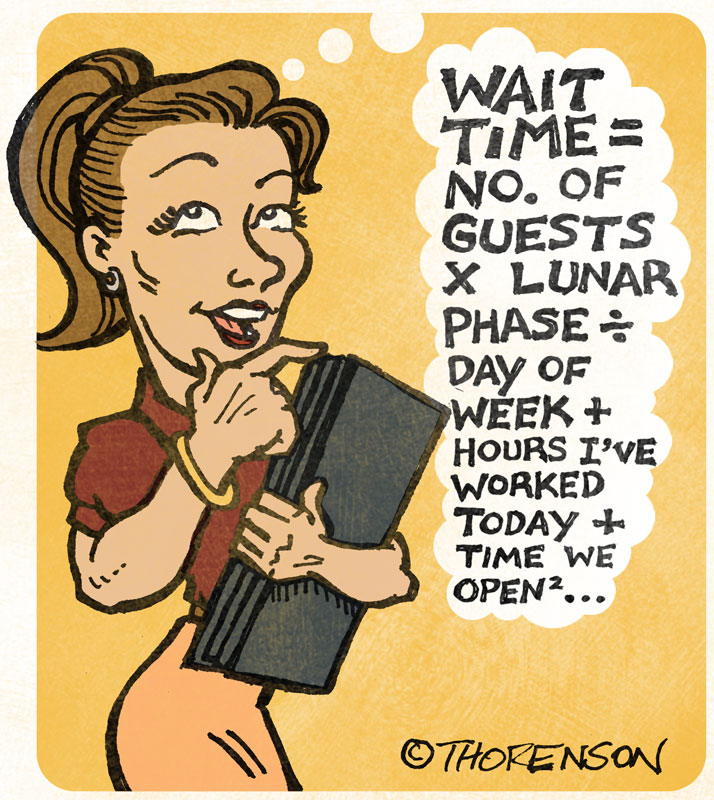
If you’ve ever gone out for dinner on a busy Saturday night you’ve most likely experienced ‘wait math.’ You approach the host station and deliver your party size and name to the cheery young hostess who quickly jots all of it down on her ‘official’ clipboard spreadsheet. Based on how you’re standing shoulder-to-shoulder with other hungry patrons, said hostess anticipates your next question like a mind-reader. After a few seconds of ‘wait math’ she delivers the answer: ‘it’ll be about a 35 minute wait.’ The skilled hostess is able to utter this phrase in such an impartial tone that you’re not sure if she’s trying to dissuade or encourage you to stay.
I was never privy to the secret ‘wait math’ formula when I worked as a bus boy in the food service sector, but there has to be some constants that make it a bit more than an educated guess. How do they come up with the final answer? Most of the time the formula is quite reliable in delivering an accurate time, but for some reason tonight it failed miserably. It’s like our hostess didn’t study enough. Either that or she was hoping to get the answer from a co-host. Maybe she just forgot to carry the one because her original answer of thirty five minutes was more like an hour and thirty five minutes. Hey, I understand you’re busy but you can’t afford to be messing up ‘wait math’ when you have customers with two hungry children. They might start eating the furniture or, worse yet, each other.
One thing’s for sure – regardless of how deficient a host or hostess’ ‘wait math’ skills may be, and how lousy the service or food ends as a result, they always manage to get the check total right. I wonder if they know how an unhappy customer’s ‘tip math’ works?